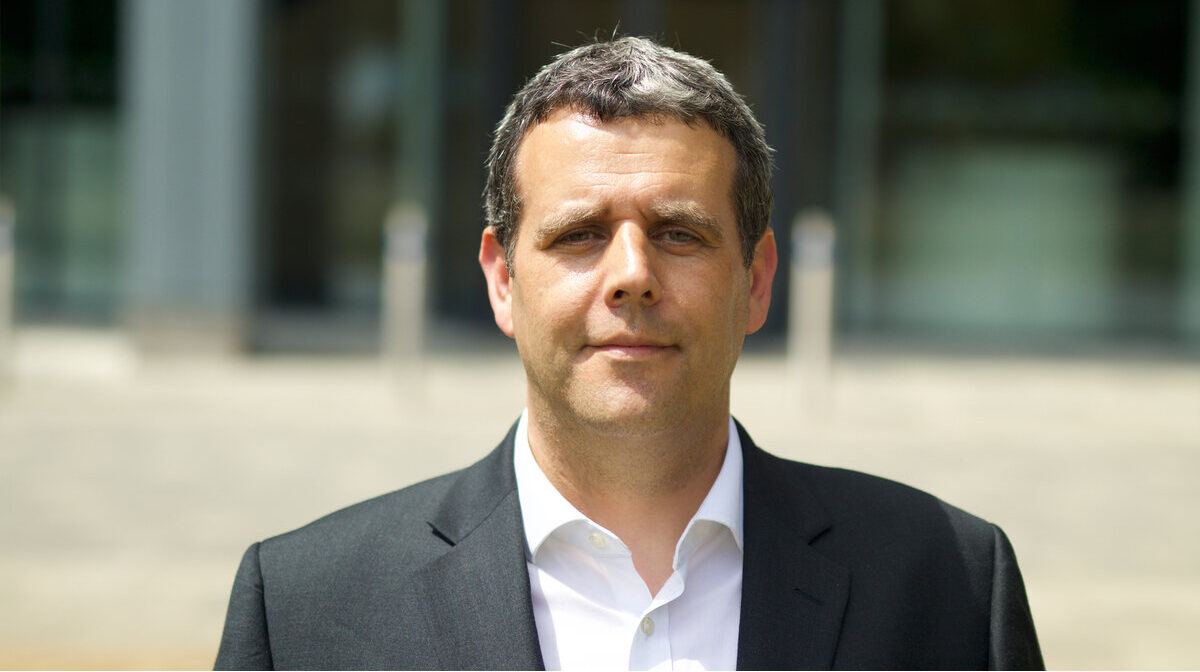Universities oblivious to scale of racial abuse on campus

The Equality and Human Rights Commission (EHRC) inquiry report Tackling racial harassment: universities challenged has revealed that with racial harassment occurring at an alarmingly high rate across British universities, many Higher Education Institutions (HEIs) are not only unaware of the scale of the issue but are overconfident in their ability to handle it.
The inquiry found that 24% of ethnic minority students have experienced racial harassment on campus.
Universities are over confident that individuals will report harassment, with 43% of universities believing that every incident of racial harassment against students was reported, and 56% believing that all incidents against staff were reported.
However, two thirds of students who responded to our survey and had experienced racial harassment said that they had not reported the incident to their university.
Less than half of all staff who responded to our call for evidence because they had experienced racial harassment, said that they had reported it to their university.
Students and staff suggested that they did not come forward about their experiences because they had no confidence that the incident would be addressed.
Others said that fear of reprisals also played a part, as two thirds of staff said that better protection from personal repercussions would have made it easier for them to bring a complaint.
The report also warns that universities are reluctant to admit the prevalence of racial harassment on campus for fear of reputational damage or putting off potential students.
One student said:
“The university’s response shows that this university was more bothered about covering the incident up to maintain a “spotless” reputation, than it was about tackling racism, sexism, or homophobia – hence a delayed investigation, and the unfair sacking of a whistleblower.”
International Students
Despite universities being keen to encourage international students to choose their courses, the research unearthed a strong theme of international students feeling unwelcome, isolated and vulnerable.
Some even described feeling like commodities and only wanted for the fees that they bring.
Half of the international students who responded to our call for evidence because they had experienced racial harassment, said that they had been made to feel excluded, over half said they had experienced racial microaggressions, and 44% said they had experienced racist abuse, but 77% of respondents did not report it to the university.
Being BAME at Oxbridge: #Brexit Will Make It Even Harder For Ethnic Minority Students To Succeed: If you were to pause and think of the imagery conjured up by the word ‘Oxbridge’, it is certainly not that of an ethnically diverse, multicultural student… https://t.co/gSdzZS6O2g pic.twitter.com/nZhIn8NUX4
— FE News (@FENews) July 23, 2019
Detrimental to Mental Health
The report uncovers the impact that racial harassment has on mental health, warning that 8% of students who had experienced racial harassment admitted to having felt suicidal.
It also exposes the detrimental impact on attainment and career progression, as one in 20 of the students who responded to our call for evidence said their experiences had caused them to leave their studies, and three in 20 of the members of staff who responded said it had caused them to leave their jobs.
One student said:
“As someone with a pre-existing mental illness, it’s difficult to express how much these incidents contributed to a relapse which I had that later that year. It was easier for me to isolate myself and not interact with others, even when I really needed support, because of how close I was to my perpetrators … I withdrew a few months after those incidents and returned to my home city.”
Recommendations
EHRC have made a series of recommendations for the UK Government and higher education providers to address racial harassment, including:
- mandatory duty on employers: the UK Government must reinstate third party harassment protections and introduce a mandatory duty on employers to increase protections for staff from harassment
- adequate powers for regulators: governments across Britain should ensure the sector regulator and funding councils have adequate powers and that these are used to hold universities to account on their performance to prevent and tackle harassment
- effective complaints procedures: higher education providers must enable students and staff to report harassment and ensure their complaints procedures are fit for purpose and offer effective redress
- senior-level action on inclusive cultures: senior leaders should take steps to embed an inclusive culture where staff and students feel confident and supported when making complaints.
Reducing racial inequality in higher education: Universities must do more to ensure fair access and progression for black and minority ethnic (BME) staff and students, the University and College Union (UCU) said today (Thursday). The union was responding… https://t.co/v4HffLZGPY pic.twitter.com/x8Hw7lOjSQ
— FE News (@FENews) September 18, 2019
Sector Response to the inquiry’s findings
Rebecca Hilsenrath, Chief Executive at the Equality and Human Rights Commission, said:
‘We expect universities to be innovative environments that do more than just teach us how to pass exams. We look to them to help us to grow as individuals and prepare us to be good citizens. It is considerably disappointing to discover that, instead of being progressive and forward thinking, they are living in the past and have failed to learn from history.
‘No one should ever be subjected to racial harassment in any setting. Our report reveals that not only are universities out of touch with the extent that this is occurring on their campuses, some are also completely oblivious to the issue. This isn’t good enough. More must be done to protect all students and staff on campus so everyone has the opportunity to reach their full potential in work and education.’
UCU general secretary Jo Grady said:
‘There must be a zero-tolerance approach to racial harassment in and around our universities. Universities have to recognise the scale of the problem and take serious steps to deal with it, and to support those who come forward or are affected by it.
‘We agree with the EHRC that there needs to be a proactive duty on universities to protect staff from harassment and an improved reporting process for staff and students.’
Dr. Tim Bradshaw, Chief Executive of the Russell Group said:
“The findings of this sobering report cannot be ignored and I would like to thank the EHRC and the many individuals who shared their experiences for helping bring timely attention to this issue. Whether we mean outright prejudice or less obvious micro-aggressions, racism in every form is an affront to the values of respect, inclusion and progressive thinking that are held dear across UK universities.
“Russell Group universities, along with many others, are working hard to get to grips with this problem. Every Russell Group university has recently reviewed their complaints procedures, is currently examining their processes or will do so now. Among the reforms being implemented are the introduction of new reporting tools to make it easier for individuals to register incidents, additional training for university staff on how to best support those who experience racial harassment, along with a range of interventions aimed at fostering a safe and inclusive culture, such as unconscious bias training and anti-racism and anti-harassment campaigns. However, we agree entirely with the EHRC that there is more that needs to be done. Their report will help inform these vital and continuing efforts.”
Professor Julia Buckingham CBE, President of Universities UK and Vice-Chancellor of Brunel University London, said:
“All higher education providers must study this report’s findings and recommendations and take urgent action.
“There is no place for racial harassment on a university campus, or anywhere else – and I find it sad and shocking how many people are still subject to it. Universities must be places where all students and staff are able to flourish and we must intensify our work to ensure this happens.
“Universities UK will today be urgently seeking independent, external expertise to strengthen our new group on tackling racial harassment to advise universities on effective actions and how to scrutinise and challenge action plans.
“And I am calling on my fellow university leaders to make this a top priority, starting by committing publicly to taking urgent action in their institution and ensuring staff and students know how to report incidents and how to access the support available to them.”
NUS Scotland Black Students Officer, Franklin Jacob:
“The EHRC report lays bare the unacceptable scourge of racial harassment experienced by staff and students at University. To read that almost a quarter (24%) of students surveyed had been the victim of racial harassment whilst 20% of students had been racially attacked is damning. The figure in Scotland (11%), whilst lower, still shows the work that must be achieved by the entire sector.
“NUS Scotland has long been at the forefront of fighting racism and division on our campuses. All universities – without fail – must take steps to address transparency of reporting procedures, provide proper redress for victims and to create a zero-tolerance culture towards racial harassment on campuses, stamping out hatred and prejudice for good.”











Responses